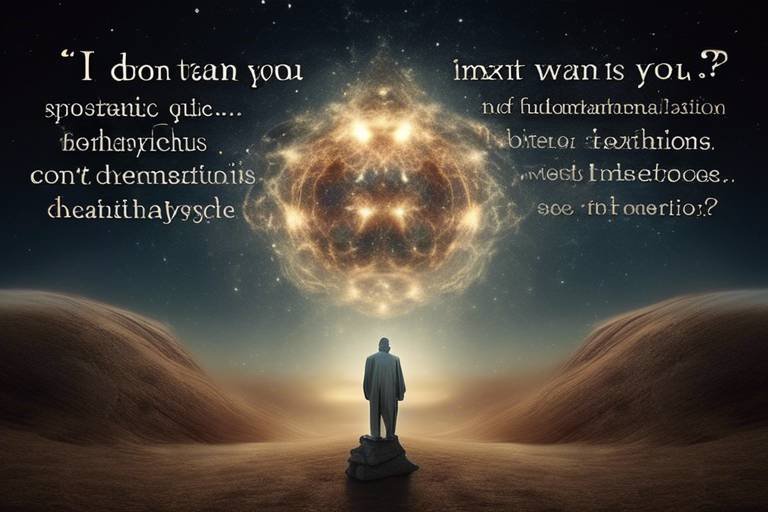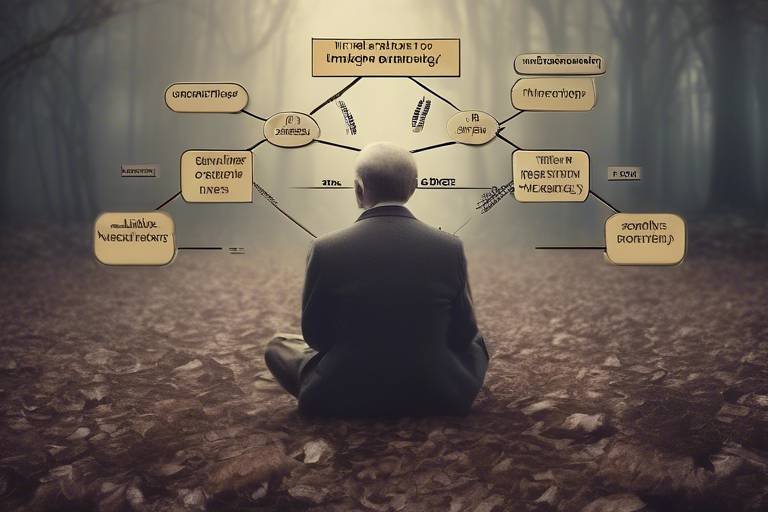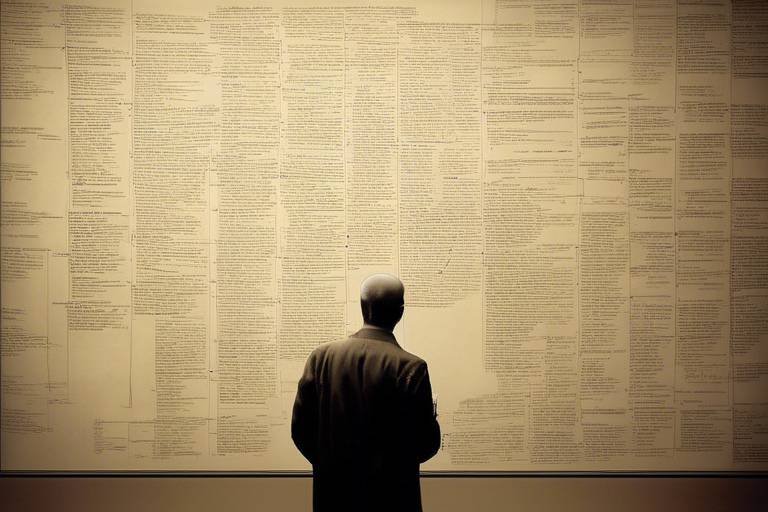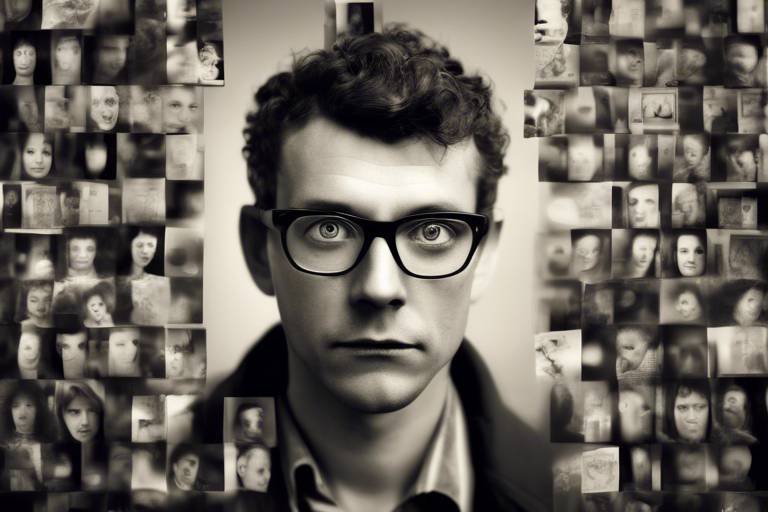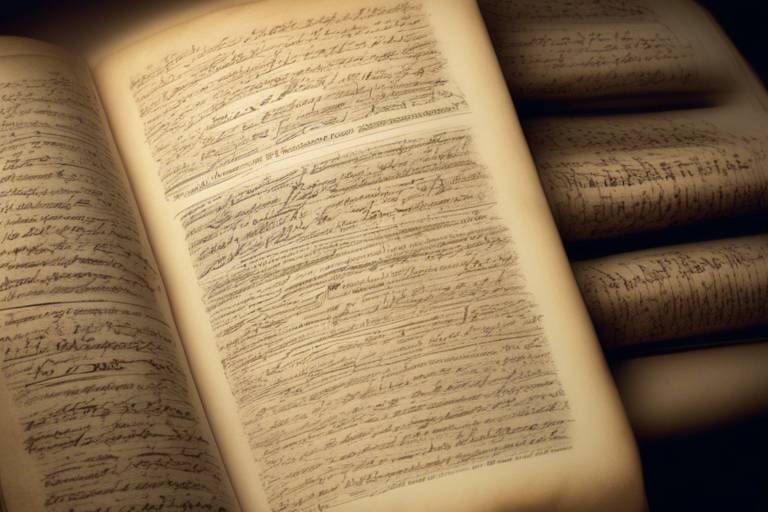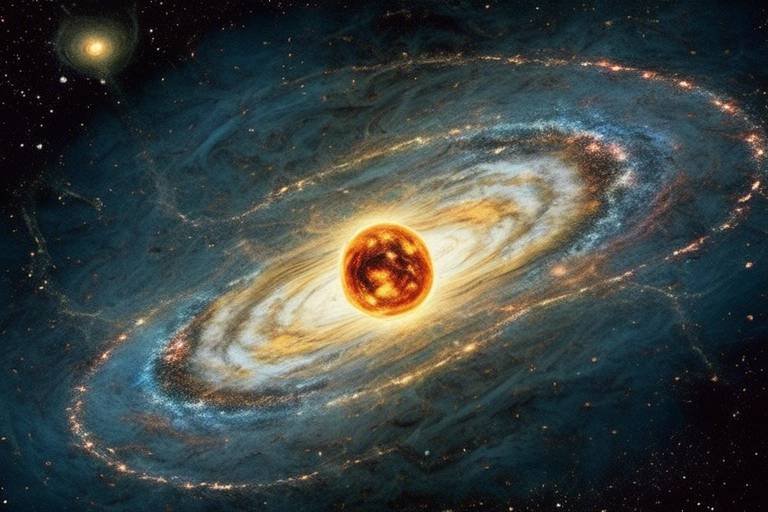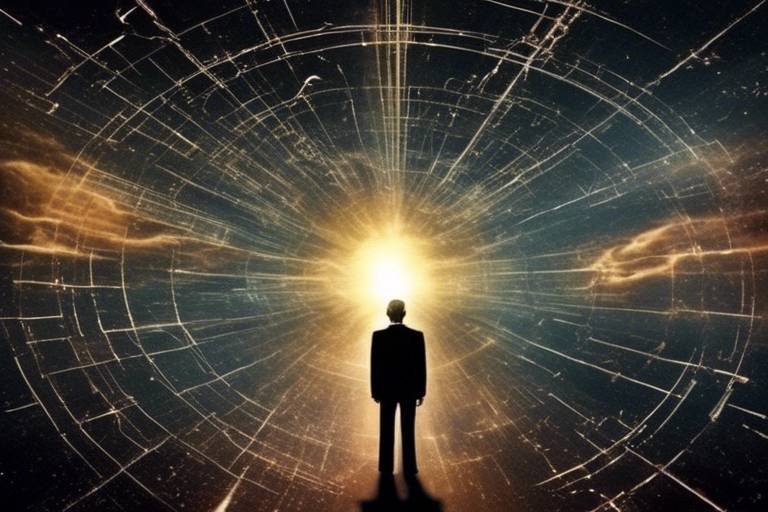Do Ontology and Theology Overlap?
When we dive into the realms of ontology and theology, we find ourselves navigating two fascinating landscapes that, at first glance, may seem entirely distinct. However, a closer inspection reveals that these fields are not just parallel tracks; they often intersect in profound ways. Ontology, the study of being and existence, asks fundamental questions about what it means to exist. In contrast, theology delves into the divine, exploring the nature of God and the implications of faith. So, do these two disciplines really overlap? The answer is a resounding yes! They both grapple with the essence of reality, existence, and our place within the universe. This article will unravel the intricate threads that connect ontology and theology, revealing how they inform and enrich each other’s inquiries.
At the heart of this exploration lies a fundamental question: What is existence? Ontology seeks to answer this by examining categories of being and the relationships between entities. Meanwhile, theology approaches this question from a different angle, often framing existence within the context of a divine creator. This interplay raises intriguing questions: Can we understand the divine without understanding existence? And conversely, can we fully grasp existence without acknowledging a higher power? By investigating these questions, we can appreciate the rich dialogue between ontology and theology.
Moreover, the overlap between these two fields is not merely academic; it has real-world implications. For instance, consider how our understanding of existence influences our moral frameworks. Many theological doctrines provide guidelines on how to live a meaningful life, often rooted in the nature of existence as defined by God. Similarly, ontological perspectives can shape our understanding of reality, prompting us to reevaluate our beliefs about the divine. This synergy can lead to a more comprehensive worldview, one that embraces both philosophical inquiry and spiritual understanding.
In the end, the relationship between ontology and theology is a dynamic dance, one that invites us to ponder deep existential questions while also considering the divine. As we continue to explore these interconnected fields, we may find that the answers we seek about existence and the divine are not so different after all. They may just be two sides of the same coin, each illuminating the other in a quest for understanding that is as old as philosophy itself.
- What is ontology? Ontology is the branch of metaphysics that studies the nature of being, existence, and reality.
- How does theology differ from ontology? Theology specifically focuses on the nature of the divine and religious beliefs, while ontology addresses broader questions about existence.
- Can theology exist without ontology? While theology can operate independently, many theological concepts are deeply intertwined with ontological questions about existence.
- What are some examples of how ontology and theology intersect? Discussions about the nature of the soul, the existence of God, and moral implications of existence are key areas where these fields overlap.

Understanding Ontology
Ontology is a fascinating branch of metaphysics that dives deep into the fundamental nature of being and existence. It’s like the philosophical equivalent of peeling an onion, layer by layer, to uncover what really makes up our reality. At its core, ontology asks profound questions such as: What does it mean to exist? What kinds of things exist? And how do these entities relate to one another? This exploration is not just for the ivory tower philosophers; it touches everyone, as it shapes our understanding of the world around us.
One of the key concepts in ontology is the distinction between substance and attribute. Substance refers to what something is—its essence—while attributes describe the properties or characteristics that a substance can have. For instance, think of a tree: its substance is the tree itself, while its attributes could be its height, the color of its leaves, or the texture of its bark. This distinction helps clarify how we categorize and understand different entities in our world.
Another important aspect of ontology is the classification of entities into different categories. Ontologists often debate the existence of various kinds of entities, such as:
- Concrete entities: These are tangible objects like rocks, trees, and animals.
- Abstract entities: These include concepts like numbers, properties, and relationships.
- Universal entities: These refer to qualities or characteristics that can be shared among multiple objects, such as "redness" in all red objects.
By categorizing entities, ontology provides a framework for understanding how different aspects of existence interact. It’s like setting up a giant puzzle where each piece represents a different kind of being, and understanding how these pieces fit together helps us see the bigger picture of reality.
Moreover, ontology isn't just an academic exercise; it has practical implications in various fields. For instance, in computer science, ontological frameworks help in organizing information and enabling better data retrieval. In artificial intelligence, ontologies are used to create knowledge representations that allow machines to understand and process human language more effectively. Thus, ontology plays a crucial role in bridging the gap between abstract philosophical concepts and real-world applications.
In summary, ontology serves as a vital foundation for philosophical inquiry, exploring the essence of existence and the relationships between different entities. By engaging with these fundamental questions, we not only enrich our understanding of the world but also enhance our ability to navigate the complexities of life.

The Role of Theology
Theology, at its core, is the study of the divine, exploring the nature, attributes, and existence of God or gods, as well as the implications of these beliefs on human life. It serves as a bridge between the sacred and the secular, allowing individuals to navigate their spiritual journeys while grappling with profound questions about existence. In a world filled with uncertainty and complexity, theology provides a framework for understanding our place in the universe and the moral guidelines that shape our actions.
One of the fundamental aspects of theology is its emphasis on faith. Faith is not merely a belief in something unseen; it is a profound trust in the divine and a commitment to a set of principles that guide one’s life. This relationship between faith and understanding is crucial, as it influences how individuals perceive reality and their purpose within it. For many, theology answers the existential questions that arise in moments of doubt or crisis, providing comfort and clarity. It helps individuals make sense of their experiences, offering explanations for suffering, joy, and everything in between.
Moreover, theology is not a monolithic discipline; it encompasses a variety of traditions and interpretations. Different religious frameworks bring unique perspectives to the understanding of the divine. For example, the Abrahamic religions—Judaism, Christianity, and Islam—share a common heritage but diverge significantly in their theological principles and practices. This diversity enriches the discourse within theology, allowing for a more comprehensive exploration of what it means to exist in relation to the divine.
In addition to addressing questions of existence, theology also engages with ethical considerations. It raises essential inquiries about morality, justice, and the nature of good and evil. Theological ethics often draws from sacred texts and traditions, providing guidelines for how individuals should live their lives. This intersection of theology and ethics is particularly significant in contemporary discussions about social justice, environmental stewardship, and human rights.
Furthermore, theology is often intertwined with culture and society. It reflects the values and beliefs of a community, shaping its identity and influencing its practices. Theologians analyze how cultural contexts impact religious beliefs, leading to rich dialogues about the relevance of theology in modern society. As we navigate an increasingly pluralistic world, understanding the role of theology can foster greater empathy and collaboration among diverse groups.
In summary, theology plays a vital role in understanding existence and the divine. It provides a lens through which individuals can explore their beliefs, grapple with existential questions, and navigate ethical dilemmas. As we continue to engage with these profound inquiries, the interplay between theology and other disciplines, including ontology, remains a crucial area for exploration and dialogue.

Historical Perspectives
When we dive into the rich tapestry of on ontology and theology, we find ourselves exploring a fascinating interplay of ideas that have shaped human thought for centuries. Imagine walking through a vast library, where each book represents a different philosopher or theologian, each contributing unique insights into the nature of existence and the divine. This journey begins in ancient times, where the seeds of ontology were sown by early thinkers who pondered the very essence of being.
In the ancient world, philosophers like Plato and Aristotle laid the groundwork for ontology. Plato, with his theory of Forms, suggested that the material world is just a shadow of a higher reality, a realm of perfect ideals. This idea resonates with theological concepts of a divine realm, where God embodies the ultimate truth. Aristotle, on the other hand, focused on substance and essence, arguing that understanding the nature of things requires examining their purpose and function. His works influenced not only philosophy but also theological thought, particularly in the context of natural theology.
Fast forward to the Middle Ages, where the likes of Augustine and Aquinas took the stage. Augustine's writings emphasized the importance of divine illumination in understanding existence, suggesting that true knowledge comes from God. His thoughts on the nature of time and eternity provided a framework for later theological discussions. Aquinas, drawing heavily from Aristotle, sought to reconcile faith and reason, presenting arguments for the existence of God that are still debated today. He introduced the idea of natural law, which posits that moral principles are inherent in human nature, further bridging the gap between ontology and theology.
As we move into the modern era, the Enlightenment brought about a shift in thinking. Philosophers like Immanuel Kant challenged traditional notions of metaphysics, suggesting that our understanding of reality is shaped by our perceptions. This perspective raised questions about the limits of human reason in comprehending the divine, leading to a more critical examination of faith. Kant's ideas opened the door for existentialist thinkers like Søren Kierkegaard, who emphasized the individual's subjective experience of faith and existence, further complicating the relationship between ontology and theology.
Throughout history, the dialogue between these two fields has been dynamic and evolving. The interplay of ideas has been marked by both harmony and tension, as thinkers grapple with profound questions about existence, purpose, and the divine. The contributions of these historical figures have paved the way for contemporary debates, reminding us that the quest for understanding is as old as humanity itself. In essence, the historical perspectives on ontology and theology not only enrich our current understanding but also highlight the timeless nature of these inquiries.
As we reflect on these historical narratives, it's essential to recognize that the journey of understanding existence and the divine is ongoing. Each philosopher and theologian has added a unique thread to the intricate fabric of thought, and in doing so, they have invited us to continue exploring the profound questions that define our existence.

Philosophers and Their Impact
When we dive into the realms of ontology and theology, we can't overlook the profound influence that philosophers have had on these fields. Think of philosophers as the architects of thought, carefully constructing the frameworks that shape our understanding of existence and the divine. Among these thinkers, figures like Aristotle and Kant stand out, each offering unique perspectives that continue to resonate today.
Aristotle, often hailed as the father of Western philosophy, introduced the concept of substance as a fundamental aspect of being. He argued that everything in existence has a particular essence, a defining characteristic that makes it what it is. This notion of substance not only laid the groundwork for metaphysical discussions but also influenced theological debates about the nature of God. For Aristotle, God was the "Unmoved Mover," a perfect being whose existence is necessary for the cosmos. This idea sparked a myriad of theological inquiries, prompting thinkers like Aquinas to reconcile Aristotelian philosophy with Christian doctrine.
Fast forward to the age of Enlightenment, and we encounter Immanuel Kant, whose work challenged traditional metaphysical views. Kant posited that our understanding of reality is shaped by the structures of our mind, suggesting that we can never truly know the "thing-in-itself." His ideas brought a new dimension to ontology, emphasizing the limits of human reason. Kant’s critical philosophy urged theologians to reconsider how they approached the divine. His assertion that moral law and the existence of God are intertwined compelled theologians to explore faith not just as a dogmatic belief but as a rational necessity for moral existence.
The impact of these philosophers extends beyond their immediate contributions. They have set the stage for ongoing dialogues between ontology and theology, prompting questions such as: What is the nature of reality? and How does our understanding of existence inform our beliefs about the divine? In exploring these questions, contemporary scholars often refer back to the foundational ideas laid out by Aristotle and Kant, illustrating how their thoughts continue to influence modern debates.
Moreover, the interplay between these philosophical perspectives and theological concepts has led to rich discussions about the nature of God. For instance, Aristotle's idea of God as an ultimate cause has been pivotal in shaping theistic arguments, while Kant’s emphasis on morality has encouraged a more ethical approach to theology. This intersection illustrates that the dialogue between philosophy and theology is not just a historical curiosity; it remains a vibrant and essential conversation in understanding our existence and the divine.
In summary, the contributions of philosophers like Aristotle and Kant have profoundly impacted both ontology and theology. Their ideas challenge us to rethink our assumptions about existence and the divine, inviting us to engage in a deeper exploration of what it means to be. As we continue to navigate these intricate relationships, we find that the legacy of these thinkers is not just in the past but very much alive in our contemporary discourse.

Theologians and Their Contributions
The field of theology has been profoundly shaped by numerous theologians throughout history, each contributing unique insights that have enriched our understanding of the divine and existence. Among these figures, Augustine of Hippo stands out as a pivotal thinker. His work, particularly in "Confessions" and "The City of God," explores the relationship between God and humanity, emphasizing the importance of divine grace and the nature of sin. Augustine's thoughts on the inner workings of the human soul and its connection to God have laid the groundwork for much of Western Christian theology.
Another significant figure is Thomas Aquinas, whose synthesis of Aristotelian philosophy and Christian doctrine has had a lasting impact on both theology and philosophy. His seminal work, "Summa Theologica," addresses the existence of God through a series of five proofs, which argue for the necessity of a first cause or an uncaused cause that we identify as God. Aquinas posited that reason and faith are not mutually exclusive but can coexist harmoniously, thus providing a framework for understanding the divine through rational inquiry.
In addition to Augustine and Aquinas, the contributions of Martin Luther cannot be overlooked. As a key figure in the Protestant Reformation, Luther challenged the established church's views on salvation and grace. His doctrine of justification by faith alone reshaped the theological landscape, emphasizing that faith, rather than works, is the means through which individuals attain salvation. This revolutionary idea not only transformed Christian thought but also influenced the development of modern Western philosophy.
Moreover, John Calvin introduced the concept of predestination, which posits that God has already determined who will be saved and who will not. Calvin's ideas have sparked extensive debates within Christianity regarding free will and divine sovereignty, further illustrating the intricate relationship between theology and ontology. The implications of his teachings extend beyond religion, influencing various aspects of Western culture, including ethics and politics.
To summarize, the contributions of these theologians have significantly shaped our understanding of the divine and existence. Their ideas continue to resonate in contemporary discussions, demonstrating the enduring relevance of their work. As we reflect on their contributions, we recognize how theology not only informs our spiritual beliefs but also enriches our philosophical inquiries into the nature of reality.
- What is the main focus of Augustine's theology? Augustine's theology primarily focuses on the nature of sin, grace, and the relationship between God and humanity.
- How did Aquinas reconcile faith and reason? Aquinas argued that faith and reason are complementary, suggesting that rational inquiry can lead to a deeper understanding of divine truths.
- What was Martin Luther's contribution to Christian thought? Luther emphasized justification by faith alone, challenging the Catholic Church's teachings on salvation.
- What is predestination according to John Calvin? Predestination is the belief that God has already chosen who will be saved, which raises questions about free will and divine justice.

Common Ground
When we dive into the realms of ontology and theology, it’s fascinating to discover that they are not as distant as one might think. Both fields grapple with profound questions about existence, reality, and the essence of being. At their core, ontology seeks to understand what it means to exist, while theology explores the nature of the divine and our relationship with it. This intersection creates a rich tapestry where philosophical inquiry meets spiritual contemplation, offering a unique perspective on life's most pressing questions.
One of the most intriguing aspects of their common ground is the exploration of existence. Ontologists ask, "What does it mean to be?" and theologians often respond with, "What is the role of the divine in our existence?" This dialogue can lead to profound insights, such as:
- The Nature of Reality: Both disciplines question what constitutes reality. Is it merely physical, or is there a metaphysical dimension that we must consider?
- Human Purpose: While ontology focuses on the essence of being, theology often provides a framework for understanding our purpose in the grand scheme of existence.
- The Search for Meaning: Existential inquiries in both fields converge on the quest for meaning, prompting individuals to seek answers that resonate with their experiences.
Moreover, the dialogue between ontology and theology can enrich our understanding of concepts like truth and morality. For instance, ontological discussions about the nature of truth can inform theological perspectives on divine revelation. Similarly, theological insights can shape ontological debates by introducing concepts of divine morality. This cross-pollination of ideas not only enhances scholarly discourse but also provides individuals with a more holistic understanding of their beliefs and existence.
In essence, the overlap between ontology and theology invites us to reflect on our place in the universe. It challenges us to consider not just the mechanics of existence, but also the spiritual dimensions that give our lives depth and meaning. As we navigate through these intricate discussions, we find that the questions raised by ontology can lead us to deeper theological insights, and vice versa. This symbiotic relationship encourages a more comprehensive exploration of the fundamental truths that define our reality.
As we continue to explore these common threads, it’s essential to recognize that both disciplines offer valuable tools for grappling with the complexities of existence. Whether through philosophical reasoning or spiritual reflection, the journey into understanding our reality is one that can be profoundly transformative.
- What is the main focus of ontology?
Ontology primarily investigates the nature of being and existence, asking fundamental questions about what it means to exist. - How does theology differ from ontology?
Theology specifically studies the nature of the divine and religious beliefs, while ontology is concerned with existence in a broader philosophical context. - Can ontology and theology inform each other?
Yes, they often intersect, enriching each other’s inquiries and providing deeper insights into concepts like reality, purpose, and morality.

Contemporary Debates
In today’s fast-paced world, the conversation surrounding ontology and theology has evolved dramatically, leading to a plethora of contemporary debates that challenge our understanding of existence and the divine. Scholars and thinkers are engaging in discussions that not only question traditional beliefs but also explore the implications of modern scientific discoveries on these ancient fields. It’s fascinating to witness how these debates are shaping our understanding of reality in a way that intertwines philosophical inquiry with theological reflection.
One of the most pressing issues in contemporary discussions is the **existence of God**. This question has been a cornerstone of theological discourse for centuries, but modern philosophers and scientists are now weighing in with fresh perspectives. For instance, the rise of atheism and agnosticism has prompted a re-evaluation of arguments for and against the existence of a divine being. Many argue that the absence of empirical evidence for God’s existence challenges traditional theological claims, while others maintain that faith transcends empirical validation.
Another significant debate revolves around the **nature of reality** itself. Ontological discussions often delve into the fabric of existence—what it means to be and how we define being. This is where theology intersects, as many theologians argue that the divine is the ultimate source of existence. The question arises: can we truly understand existence without acknowledging the divine? This leads to a rich dialogue between those who advocate for a purely scientific interpretation of reality and those who see the divine as integral to understanding existence.
Moreover, the intersection of **science and faith** has sparked intense discussions. As scientific advancements continue to push the boundaries of what we know about the universe, questions about the compatibility of scientific theories with theological beliefs become more pronounced. For instance, the theory of evolution has been a contentious point for many religious groups. Some see it as a direct challenge to the creation narratives found in sacred texts, while others find ways to reconcile these views, arguing that evolution can be part of God’s creative process.
To illustrate the complexity of these debates, let’s consider some of the key topics currently being discussed in academic circles:
- The Problem of Evil: How can a benevolent and omnipotent God allow suffering and evil in the world?
- Free Will vs. Determinism: Do humans have free will, or is everything predetermined by divine will?
- The Nature of Miracles: Can miracles be explained through natural laws, or do they require divine intervention?
- Postmodern Theology: How do contemporary philosophical movements shape our understanding of faith and existence?
These debates are not merely academic; they resonate with our daily lives and influence how we perceive our place in the universe. As individuals grapple with existential questions, they often find themselves navigating the waters of both ontology and theology, seeking answers that resonate with their personal experiences and beliefs.
In conclusion, contemporary debates in ontology and theology are rich with complexity and depth. They challenge us to think critically about our beliefs and the nature of existence. Whether we lean towards a more scientific perspective or embrace a theological worldview, the dialogue between these two fields remains vibrant and essential in our quest for understanding.
- What is the difference between ontology and theology? Ontology is the study of being and existence, while theology focuses on the nature of the divine and religious beliefs.
- How do modern scientific discoveries impact theological beliefs? Scientific advancements often challenge traditional theological views, leading to discussions about the compatibility of faith and reason.
- Can ontology and theology coexist? Yes, many scholars believe that ontology and theology can inform and enrich each other’s inquiries, leading to a more comprehensive understanding of existence.

Existential Questions
When we dive into the realm of , we find ourselves facing some of the most profound inquiries that have puzzled humanity for centuries. These questions often revolve around the essence of our existence and the meaning behind our lives. Think about it: why are we here? What is our purpose? Is there a greater force at play guiding our journeys? These aren't just philosophical musings; they are fundamental quests that intertwine both ontology and theology.
At the heart of these existential inquiries is the desire to understand our place in the universe. Ontology seeks to dissect the nature of being—what it means to exist in a physical and metaphysical sense. Meanwhile, theology adds another layer by exploring the divine and the spiritual dimensions of existence. Together, these fields create a rich tapestry of thought that can lead to enlightening discussions. For instance, when pondering the question "What does it mean to exist?", ontology might respond with definitions and categories of being, while theology might explore the implications of divine purpose behind that existence.
Moreover, these existential questions often lead to a dialogue between individuals and their beliefs. Consider the following points:
- Meaning of Life: Many people turn to theology to seek answers about the meaning of life, often influenced by their religious beliefs.
- Nature of Reality: Ontological discussions can provide frameworks for understanding what is real and how we perceive it, which is crucial when contemplating existence.
- Personal Identity: Questions about who we are and what defines us can be deeply rooted in both ontological and theological perspectives.
These intersections create a dynamic space for exploration. For example, an individual grappling with feelings of insignificance may find solace in theological teachings about the inherent value of every human life, while simultaneously engaging with ontological theories that affirm their existence as part of a larger reality. This interplay not only enriches personal understanding but also fosters a community of inquiry where different perspectives can coexist and challenge each other.
As we navigate through these existential questions, it's essential to recognize that the answers are not always clear-cut. They often lead to more questions, creating a cycle of exploration that can be both daunting and exhilarating. In this journey, one might find that embracing uncertainty can actually be liberating, allowing for a more profound connection to both the universe and the divine.
In conclusion, existential questions serve as a bridge between ontology and theology, prompting us to reflect on our existence and the greater mysteries of life. Whether through philosophical debate or spiritual contemplation, these inquiries are vital to our understanding of ourselves and the world around us. They remind us that while we may not have all the answers, the pursuit of knowledge and meaning is a journey worth taking.
| Question | Answer |
|---|---|
| What is ontology? | Ontology is the branch of metaphysics that studies the nature of being, existence, and reality. |
| How does theology relate to existence? | Theology explores the nature of the divine and religious beliefs, often addressing questions about the purpose and meaning of life. |
| Why are existential questions important? | These questions help us understand our place in the universe, guiding our search for meaning and purpose. |

The Intersection of Science and Faith
The relationship between science and faith is often portrayed as a battleground, where empirical evidence clashes with deeply held beliefs. However, this perspective is overly simplistic and misses the nuances of how these two domains can interact and complement each other. Science seeks to understand the natural world through observation, experimentation, and rational inquiry, while faith often addresses questions of purpose, meaning, and the divine that lie beyond the empirical realm. So, how do we reconcile these two approaches to understanding existence?
One way to view the intersection of science and faith is through the lens of complementarity. Just as light can exhibit both particle and wave properties depending on how we observe it, science and faith can provide different but equally valid perspectives on the same reality. For instance, while science can explain the mechanics of the universe—from the Big Bang to the formation of galaxies—faith can offer insights into why the universe exists in the first place. Questions like "Why are we here?" or "What is our purpose?" often transcend scientific inquiry and delve into theological reflection.
Furthermore, many scientists throughout history have held religious beliefs that influenced their work. Figures such as Isaac Newton and Albert Einstein were not only pioneers in their respective fields but also engaged with profound questions about the universe's origins and the nature of existence. They viewed their scientific endeavors as a way to uncover the mysteries of creation, seeing no contradiction between their scientific pursuits and their faith. This interplay can inspire a holistic understanding of reality, where both science and faith contribute to a richer tapestry of knowledge.
However, the dialogue between science and faith is not without its challenges. Some argue that the advancements in scientific understanding have rendered traditional religious beliefs obsolete. This perspective can create a sense of conflict, leading to debates that often polarize communities. Yet, it's essential to recognize that both domains can evolve. For example, while scientific theories may change with new discoveries, faith can also adapt to incorporate new understandings of the universe. This dynamic interaction allows for a more nuanced conversation, where both science and faith can inform and enrich one another.
In contemporary discourse, numerous scholars and thinkers advocate for a collaborative approach, suggesting that science and faith can coexist harmoniously. Initiatives such as the BioLogos Foundation promote the idea that scientific discoveries, particularly in fields like evolutionary biology, do not have to undermine faith but can enhance our understanding of God's creation. This perspective encourages an open dialogue that respects both scientific inquiry and spiritual exploration.
To further illustrate the intersection of science and faith, consider the following table that highlights key areas of overlap between the two fields:
| Aspect | Science | Faith |
|---|---|---|
| Nature of Existence | Explores the mechanics of the universe | Seeks to understand the purpose behind existence |
| Methodology | Empirical observation and experimentation | Revelation, tradition, and personal experience |
| Key Questions | How does the universe work? | Why does the universe exist? |
| Influential Figures | Newton, Einstein, Hawking | Augustine, Aquinas, C.S. Lewis |
In conclusion, the intersection of science and faith is not a realm of conflict but rather a space ripe for exploration and dialogue. By embracing the strengths of both perspectives, we can begin to address some of the most profound questions about existence and the universe. The journey toward understanding is ongoing, and as we navigate this complex landscape, it is essential to remain open to the insights that both science and faith can offer.
- Can science and faith coexist? Yes, many believe that science and faith can complement each other and provide a fuller understanding of existence.
- How do scientists view religious beliefs? Many scientists hold personal beliefs that may influence their work, seeing science as a way to explore the mysteries of creation.
- What is the role of faith in understanding the universe? Faith addresses questions of purpose and meaning that often go beyond what science can explain.
Frequently Asked Questions
- What is the main difference between ontology and theology?
Ontology focuses on the nature of being and existence, while theology is concerned with the study of the divine and religious beliefs. In simpler terms, ontology asks "What exists?" and theology asks "What is God?"
- How do ontology and theology intersect?
These two fields overlap in their exploration of existence and reality. For instance, questions about the nature of existence can lead to theological inquiries about the existence of God, making their relationship quite dynamic.
- Can you give examples of philosophers who influenced both ontology and theology?
Absolutely! Philosophers like Aristotle and Kant have significantly shaped discussions in both fields. Aristotle's concepts of being have informed theological discussions, while Kant's ideas challenge how we perceive existence in relation to faith.
- What role do historical perspectives play in understanding ontology and theology?
Historical perspectives provide context to contemporary discussions. By examining how ancient philosophers and theologians approached these topics, we can better appreciate the evolution of thought and its impact on modern beliefs.
- Are there existential questions that both disciplines address?
Yes, both ontology and theology tackle existential questions about meaning and purpose in life. They seek to understand not just the "what" of existence but also the "why," which is central to human experience.
- How does science interact with ontology and theology?
The dialogue between science, ontology, and theology raises intriguing questions about existence. For instance, scientific discoveries can challenge traditional theological views, leading to rich discussions about the nature of reality.
- Why is it important to study the relationship between ontology and theology?
Understanding their relationship can enrich our comprehension of existence and the divine. It offers a more holistic view of reality, bridging gaps between philosophy, religion, and science, which is crucial for personal and academic growth.


